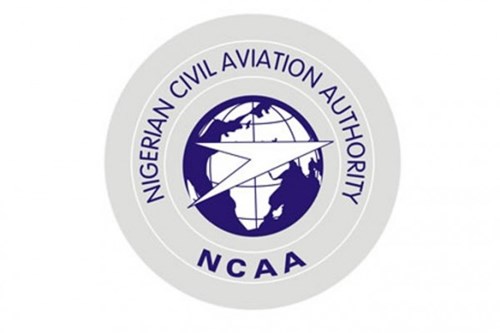The Nigerian aviation industry finds itself at a crossroads, grappling with the complexities of international finance regulations and the persistent challenge of dollar-denominated airline ticket sales. While the Nigerian Civil Aviation Authority (NCAA) remains preoccupied with extricating Nigeria from the Financial Action Task Force’s (FATF) grey list, travel agents are protesting the continued practice of foreign airlines selling tickets exclusively in US dollars within the country. This dual focus highlights the tension between adhering to global financial standards and addressing local economic realities. The NCAA’s prioritization of FATF compliance, stemming from concerns over money laundering, terrorism financing, and arms proliferation, has seemingly overshadowed the grievances of local travel agents.
The NCAA’s primary strategy for addressing FATF concerns involves enforcing the $10,000 currency declaration rule for inbound international passengers. This directive mandates that airlines inform passengers of their obligation to declare any currency or bearer negotiable instruments exceeding this threshold. The NCAA has emphasized the importance of pre-landing announcements and the distribution of currency declaration forms onboard aircraft. While this measure aims to enhance transparency and combat illicit financial flows, it does little to address the core issue raised by travel agents regarding the dollar-denominated ticket sales. The lack of response from the NCAA to the travel agents’ concerns underscores the disconnect between regulatory priorities and the practical challenges faced by businesses operating within the Nigerian aviation sector.
Meanwhile, the National Association of Nigerian Travel Agents (NANTA) continues to voice strong opposition to the dollar-only ticket sales, arguing that this practice artificially inflates ticket prices, disadvantages Nigerian travelers, and facilitates cross-border trade that deprives Nigeria of a significant portion of its travel market. NANTA asserts that the naira has stabilized and there is sufficient liquidity to justify naira transactions. They contend that the current practice undermines the national currency and allows foreign agents to sell tickets to Nigerian travelers at lower rates than those available within the country, effectively diverting revenue away from the Nigerian economy.
NANTA’s President, Yinka Folarin, has called on the Federal Government to intervene and mandate that airlines incorporate naira transactions into their booking systems, emphasizing the need to assert national sovereignty in this matter. He argues that the small margin between official and parallel market exchange rates, coupled with increased transparency and CBN oversight, removes any justification for the continued reliance on dollar transactions. Folarin’s call for government intervention reflects the growing frustration within the travel industry and the belief that the government has the power to rectify this situation. Various travel agents, speaking anonymously, have echoed Folarin’s concerns, warning that Nigerian travelers will bear the brunt of the continued dollar sales policy.
Former NANTA President, Susan Akporiaye, has also reiterated the association’s unwavering commitment to addressing this issue. She highlighted the lack of government response despite repeated protests and emphasized the need for sustained pressure to ensure meaningful action. Akporiaye criticized the government’s tendency to react only during crises, such as the period of trapped airline funds, and then revert to a “business as usual” approach. She argued that the government’s perceived endorsement of the dollar-only practice emboldens airlines to maintain it. Akporiaye called on the government to re-evaluate any justifications for this practice and to prioritize economic growth by requiring foreign companies to offer naira payment options. She expressed optimism that the ongoing conversation will eventually reach the appropriate authorities and lead to positive change.
The lack of response from the NCAA, specifically the Director of Public Affairs and Consumer Protection, further compounds the frustration of travel agents. Despite repeated attempts to obtain a statement on the matter, no response has been forthcoming. This silence reinforces the perception that the NCAA is prioritizing international regulatory compliance over addressing the pressing concerns of local stakeholders. The contrasting priorities of the NCAA and NANTA highlight a critical challenge within the Nigerian aviation sector: balancing global financial regulations with the practical needs of local businesses and consumers. The silence from the NCAA raises concerns about the effectiveness of communication and engagement between the regulatory body and the industry it oversees. The ongoing debate over dollar-denominated ticket sales underscores the need for a more comprehensive approach that addresses both international financial compliance and the economic realities of the Nigerian travel market.


